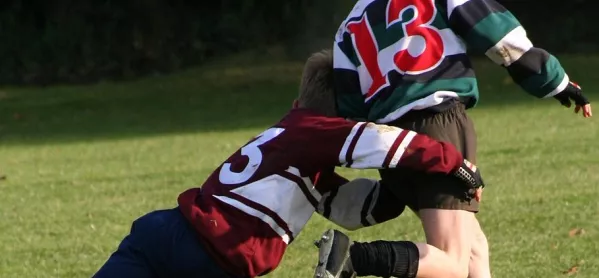Private school sport based on belief that ‘pain makes a man of you’, report warns

Too many private schools’ sports are based on the “unsubstantiated” belief that “pain and discomfort somehow make a man of you”, a leading independent schools adviser has said.
The claims came in a report presented to private school headteachers by Neil Rollings, a former private school director of sport and chair of the Professional Association of Directors of Sport in Independent Schools.
It said that the days of compulsory team sports for all students at private schools were “numbered” and that parents were “refusing to accept unequal opportunity based on physical ability”.
Much of the sport that took place in private and grammar schools, the report said, had “a direct bloodline to Tom Brown’s Schooldays” and was based on “blind faith in benefits, which, though widely articulated, are little substantiated”.
The report, presented to the Headmasters’ and Headmistresses’ Conference, which represents top private schools, said too many independent schools had failed to give all children equal opportunities to participate in competitive sport. This was despite claiming in their prospectuses that they would seek to develop the capacities of all pupils, it said.
“Only the most able get selected, coached and offered the best competitive opportunities,” the report said. “They become the self-fulfilling ‘sporty’ pupils.”
This risked overlooking able pupils because the sporting ability of pre-adolescent children was skewed by early maturity, the reported added. “Schools have always given early maturers advantages that cannot be easily overcome,” it said.
The report said that although there would “probably continue to be a compulsory experience” of sport at school, the compulsion should only be applied for the first few years of secondary education, with students able to make a choice after a few years’ experience of sports whether they wanted to continue with them.
“A suspension of the rigours of compulsion will not spell the end of team games in schools,” the report said. “Rather, it will encourage schools to focus on building a culture in which children want to play.”
For more than a century schools had “hidden some shabby provision (especially for the less able) behind compulsion, and an unsubstantiated view that pain and discomfort somehow ‘makes a man of you’ through a process unknown to science”, the document added.
Mr Rollings told heads at the HMC’s annual conference in St Andrews today: “More people of my generation learned to hate team games at school than learned to love them.”
He called for a new approach to school sport in which non-competitive alternatives, such as Zumba, were offered on an equal footing to competitive sports, rather than being viewed as a “consolation prize”.
“We need to look at the culture of health and fitness, and I think it is confused by this idea of sports for all,” he said. “Sport, meaning team games, will never be for all. It never was.”
Mr Rollings added, however, that team games and competition would “always play a massive part” in the culture of private schools.
Research by the HMC, published today, found that 136 HMC independent schools were offering 43 different sports to sixth formers. They include clay pigeon shooting, tug-of-war and ultimate Frisbee.
Lucy Pearson, head of the independent Cheadle Hulme School in Cheshire, told the conference: “I think we have an obligation to educate students and sometimes that means they do things they find less preferable…so that they can make an informed choice. In Year 9 or Year 10 they can say, ‘I’ve had that plethora of experiences, I can make that choice’.”
Gregg Davies, headmaster of the independent Shiplake College in Oxfordshire, said at the conference: “I think [school sport] will be very different in future. There will be a proliferation of more individual sports. I think there always will be space for team sports but there will be different sports that come up.”
Keep reading for just £1 per month
You've reached your limit of free articles this month. Subscribe for £1 per month for three months and get:
- Unlimited access to all Tes magazine content
- Exclusive subscriber-only stories
- Award-winning email newsletters



